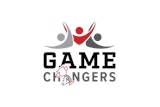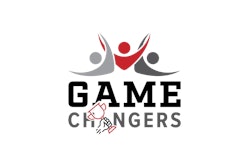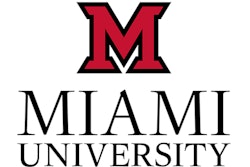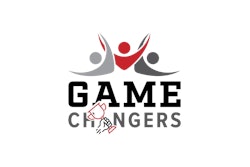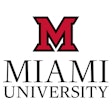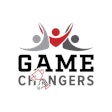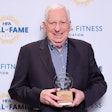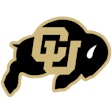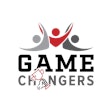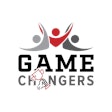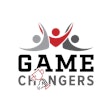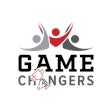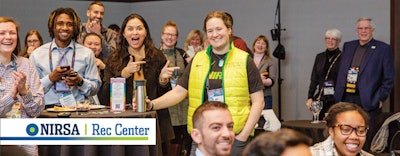
Editor's note: This article was written prior to the cancellation of the 2020 NIRSA Annual Conference and Campus Rec & Wellness Expo due to the coronavirus pandemic. NIRSA has compiled a list of COVID-19 updates and resources for collegiate recreation professionals here.
While Don Umland was attending the 2019 NIRSA Annual Conference and Campus Rec & Wellness Expo in Boston, the director of campus recreation at Augustana (Ill.) College happened to witness a demonstration of Cardio Sport — a high-intensity group fitness program that integrates interval training with sports-related movements.
Intrigued by what he saw and interested in beginning a Cardio Sport program at Augustana, he returned to Rock Island, Ill., and sent out a campus-wide email in which he asked students who wanted to find out more about the activity to get in touch. Less than a year later, Augustana (with an enrollment of 2,700) boasts 11 students who are certified Cardio Sport trainers.
"I really went into this idea blind, not knowing what result I was going to get, and it turned out to be fantastic," says Umland, who is Augustana's only full-time campus recreation employee. "Ultimately, it will allow me to have 11 students teach the classes, which is less costly than hiring professional instructors. And it helps justify the need to attend future professional development events."
Not just 'a rec thing'
Whether you're sending a strong contingent of full-time staff members and student employees to the NIRSA Annual Conference and Campus Rec & Wellness Expo (April 18-21 in Phoenix) or to AB Show 2020 (Nov. 3-6 in Baltimore) — or offering a wide range of other professional development opportunities — it's increasingly important to not only make such opportunities a priority but also demonstrate their value to administration officials.
"We are institutions of higher learning, and one of our primary missions should be student learning and helping people grow," says Eric Nickel, director of university recreation at James Madison University and the 2020 recipient of NIRSA's Honor Award, the association's most prestigious recognition. "I don't just look at this as a rec thing; our goal is to help students develop core skills for whatever field they are going into. These students will go out in the world and represent this institution."
It should come as no surprise that James Madison is sending a large contingent of people to Phoenix this year, including full-time employees, graduate students and undergraduate students. In many cases, those students were chosen based on the development goals they were required to set — such as learning how to motivate more peers to begin a fitness routine or initiating difficult conversations with colleagues and patrons. Some goals might best be met by attending NIRSA or AB events, while perhaps others can be achieved via online training or on-campus programming, Nickel says.
When travel to industry events is involved, James Madison staff and students drive rather than fly whenever possible, and students may book four people to a hotel room. The department budgets 1 percent of all wages for its 630 undergraduate student employees to offset event registrations, Nickel adds, while students can take on additional responsibilities to earn money for such expenses as airfare and hotel (or they can opt to pay for travel and lodging out of their own pockets).
At Augustana, where the campus recreation staff consists almost entirely of student employees, Umland relies on budgeted dollars and alumni donations specifically allocated to professional development programming, and he gives travel priority to students who plan on pursuing careers in recreation.
Because Augustana likely will implement an esports club program and hire a coach within the next year, Umland joined the college's dean of students and three students to recently attend an esports symposium in Des Moines, Iowa, to better prepare themselves for the programming addition.
"I need to make sure I have kids on our staff who understand how this works," Umland says. "Plus, it's just as important for me to be a learner as it is for them."
'The outcome is critical'
Similarly, just as critical as seeking learning opportunities is implementing them. The University of California, Davis encourages collaboration, continuous improvement and innovation. As a result, Student Affairs supports professional growth, career development, work-life harmony, wellness and staff retention. To that end, Deb Johnson, director of recreation at UC Davis, has found a way to document outcomes after conferences are attended.
"When our staff returns from a conference, they are asked to submit information on what they learned and what they plan to implement by a certain date — either on a unit level or a department-wide level," Johnson says. "When the due date arrives, our staff updates the information with details about what was implemented and the outcome. It's a great way for me to go back to the university and say, 'This is our return on investment from attending professional development training.' Tracking and seeing the outcome is critical. By having staff members choose their passion project and commit to a fulfillment date, it keeps the tools they gained working to benefit our department and the university as a whole."
One recently implemented change came as a result of a staff member attending the World Aquatic Health Conference and involved rethinking basic communication strategies. UC Davis hosts many youth aquatics programs, during which lifeguards and instructors now state the outcome they seek rather than relying solely on the language traditionally used. For example, lifeguards now say, "Please walk" instead of "Don't run." The avoidance of using a negative word has done wonders for patron behavior, Johnson notes.
Other implementations are loftier. Three UC Davis staff members each attended different conferences and returned to create training programs focused on adaptive recreation and customer care — leading to deeper discussions of how the university's campus recreation department can do more to support the needs of all students.
And don't forget about the trade show component many industry events offer.
"That's where we can get on equipment, speak with vendors and find out about trends," Johnson says. "We bring our employee that oversees the maintenance and fitness experts to try out the pieces and ask questions. We also have been able to make purchases that we know meet the needs of our patrons — ensuring we are making the best use of our budget dollars."
Given such significant returns on investment, Johnson says she can't imagine operating a campus recreation department without leveraging professional development opportunities. Yet she worries that one day she and her peers might have to face the harsh reality of going without — especially as college enrollment is anticipated to decline later this decade.
"When money gets tight, professional development often is the first thing to go away," she says. "But that's really when you need it the most."
This article originally appeared in the April 2020 issue of Athletic Business with the title "The case for professional development training." Athletic Business is a free magazine for professionals in the athletic, fitness and recreation industry. Click here to subscribe.














